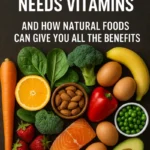When we think of a heart attack, we often imagine a dramatic scene, a person clutching their chest, gasping, and falling to the ground. But the reality is far more complex and often much quieter. Most people don’t realize that the body usually whispers warnings days or even weeks before a heart attack actually strikes. Unfortunately, these subtle signals are often brushed aside or mistaken for something else entirely.
In this blog post, we’ll dive deep into the hidden signs of a heart attack you may experience before the actual event, what they could mean, who’s at risk, and when it’s time to seek medical help. This is not just about saving lives, it’s about listening to your body before it’s too late.

Why You Should Never Ignore the Early Signs
According to the American Heart Association, nearly 50% of heart attack victims had early warning symptoms but they ignored them. In India, heart disease is the leading cause of death, and what’s more alarming is that heart attacks are striking people as young as their late 30s.
The good news? Recognizing the signs early can give you a head start to seek medical help and potentially prevent a major cardiac episode.
Hidden Signs of a Heart Attack Are :
1. Unexplained Fatigue
What It Feels Like:
You feel unusually tired, even after a full night’s sleep. Tasks like climbing stairs or walking to your car seem more exhausting than usual.
Why It Matters:
Fatigue is a common sign that your heart isn’t pumping efficiently, meaning it’s struggling to deliver enough oxygen to your tissues. This can happen days or even weeks before a heart attack.
Especially Common In: Women over 40, diabetics, and people with hypertension.
2. Discomfort in the Jaw, Neck, or Back
What It Feels Like:
A dull ache, tightness, or pressure that comes and goes in your jaw, neck, upper back, or shoulder blades. Sometimes it’s mistaken for muscle strain or sleeping in the wrong position.
Why It Matters:
This kind of pain is known as referred pain where the nerves around the heart transmit pain to other areas. It may come and go but usually gets worse with exertion and improves with rest.
Note: Pain in the jaw is an often overlooked sign in women.
3. Mild Chest Discomfort
What It Feels Like:
It’s not always the crushing chest pain you see in movies. Many people report a tightness, pressure, or squeezing sensation like someone is sitting on your chest.
Why It Matters:
This is your heart’s way of saying, “I’m not getting enough oxygen.” It may feel like indigestion or heartburn, and it often goes unnoticed.
Don’t Ignore It If: It happens while you’re resting, or after mild activity like bending over or walking a short distance.
4. Shortness of Breath (Even Without Chest Pain)
What It Feels Like:
You feel like you can’t catch your breath, especially when doing light physical activity or lying flat. It may even wake you up at night.
Why It Matters:
This can be a sign of fluid buildup in the lungs due to a weakened heart muscle. In some cases, shortness of breath is the only sign of an impending heart attack.
5. Cold Sweats and Dizziness
What It Feels Like:
Suddenly breaking into a cold sweat without any clear reason. You may also feel lightheaded or like you’re going to faint.
Why It Matters:
Sweating is your body’s response to stress. When your heart is struggling, the body kicks into “fight or flight” mode, leading to sudden chills and clamminess. Dizziness indicates a drop in blood pressure or poor blood circulation to the brain.
Often Misinterpreted As: Anxiety or low blood sugar.
6. Nausea or Vomiting
What It Feels Like:
You feel queasy, bloated, or even throw up often accompanied by a feeling of fullness in your upper abdomen.
Why It Matters:
The vagus nerve, which runs from your brain to your stomach, can be irritated when your heart is in trouble. Nausea can also occur due to reduced blood flow to the digestive tract.
Especially Common In: Women and people over 60.
7. Irregular Heartbeat or Palpitations
What It Feels Like:
A sensation that your heart is fluttering, racing, or skipping a beat. It may last a few seconds or minutes.
Why It Matters:
While occasional palpitations can be harmless, persistent arrhythmias may signal poor electrical conduction in the heart or a struggling cardiac muscle. If it happens along with fatigue or dizziness, seek immediate help.
8. Swelling in Ankles or Feet
What It Feels Like:
Your shoes feel tighter, or you notice puffiness in your ankles and feet by the end of the day.
Why It Matters:
Fluid retention is a classic sign of congestive heart failure, which can be a precursor or aftermath of a heart attack. The heart can’t pump effectively, leading to pooling of blood in the lower limbs.
9. A Sense of Dread or Anxiety
What It Feels Like:
A sudden, unexplained sense of doom. You feel like something is wrong, even if you can’t put your finger on it.
Why It Matters:
Some patients report a “gut feeling” that something bad is about to happen. This may be your body’s subconscious response to internal distress.
Who’s Most at Risk for Silent or Atypical Symptoms?
People who are more likely to experience these subtle signs (rather than classic chest pain) include:
- Women
- Diabetics
- Elderly people
- People with high blood pressure or obesity
- Smokers
- People with a family history of heart disease
What to Do If You Notice These Symptoms
- Don’t brush it off. If any of these symptoms are new, persistent, or unusual take them seriously.
- Call emergency services. In India, dial 112 or your local emergency number. Do not attempt to drive yourself to the hospital.
- Chew an aspirin (if not allergic) while waiting for help it can help thin the blood and minimize damage.
- Don’t delay. Heart attacks can escalate quickly, and early treatment makes a significant difference.
Tips to Prevent a Heart Attack Before It Happens
Even if you’re feeling fine today, it’s never too early to protect your heart:
- Get regular checkups. Especially if you’re over 30 or have risk factors.
- Control your blood pressure, cholesterol, and diabetes.
- Quit smoking.
- Exercise at least 30 minutes a day.
- Eat a heart healthy diet rich in fruits, vegetables, whole grains, and healthy fats.
- Manage stress through yoga, meditation, or therapy.
- Avoid alcohol or consume in moderation.
Final Thoughts: Trust What Your Body Is Telling You
Heart attacks are rarely silent. They often start as a whisper a little fatigue, a mild pain, a skipped heartbeat. The tragedy is that we ignore these signs until it’s too late.
Educating yourself and others about the early and hidden signs of a heart attack can be life saving. The next time your body tries to tell you something, listen. It just might save your life.
FAQs: Hidden Signs of Heart Attack
Q1. Can a heart attack happen without chest pain?
Yes, especially in women and diabetics. Fatigue, jaw pain, and shortness of breath are also red flags.
Q2. How many days before a heart attack do symptoms appear?
Symptoms may appear 3 to 7 days before, sometimes even earlier.
Q3. Is gas or indigestion a sign of heart attack?
Not always, but if it’s persistent and unusual, especially with chest discomfort, get it checked.
Q4. Can stress cause a heart attack?
Yes. Chronic stress increases heart disease risk and can even trigger an attack in vulnerable individuals.
Q5. What test can detect a coming heart attack?
A cardiac stress test, ECG, echocardiogram, and coronary angiography can help assess risk.
Disclaimer:
This article is for informational purposes only and is not a substitute for professional medical advice, diagnosis, or treatment. Always consult your physician or a qualified healthcare provider with any questions you may have regarding a medical condition. If you believe you are experiencing a medical emergency, call emergency services immediately.

Hi, I’m Prashant Jain — a curious soul, storyteller, and content creator at heart.I’ve always been drawn to the world of entertainment, travel, sports, health & lifestyle — not just as a writer, but as someone who genuinely lives these experiences. Whether I’m binge-watching the latest OTT series, exploring offbeat spiritual destinations in India, or diving deep into wellness routines and cricket match insights, I love sharing what I discover with like-minded readers.
PopNewsBlend is my way of blending personal journeys with meaningful stories — ones that inform, inspire, and keep you ahead of the curve. Everything I write comes from real observations, hands-on experiences, and a deep passion for understanding the world around us.
Discover more from Popnewsblend
Subscribe to get the latest posts sent to your email.







